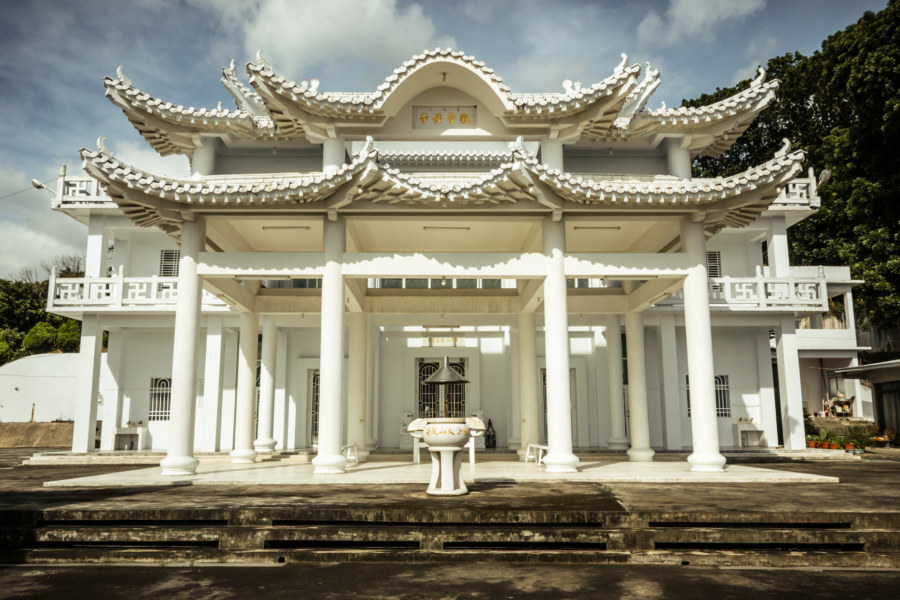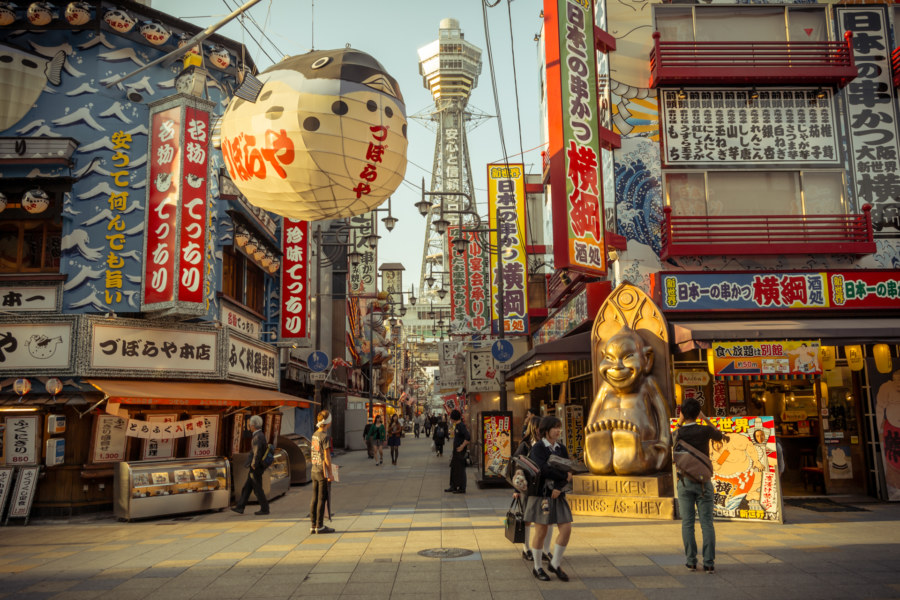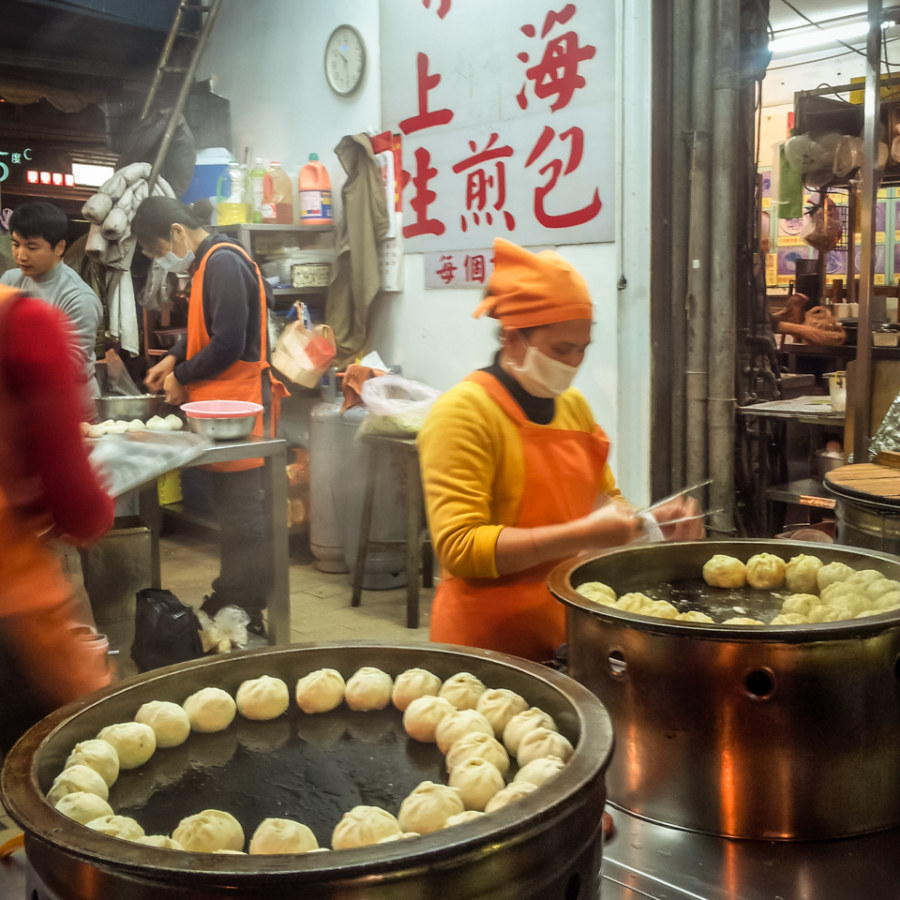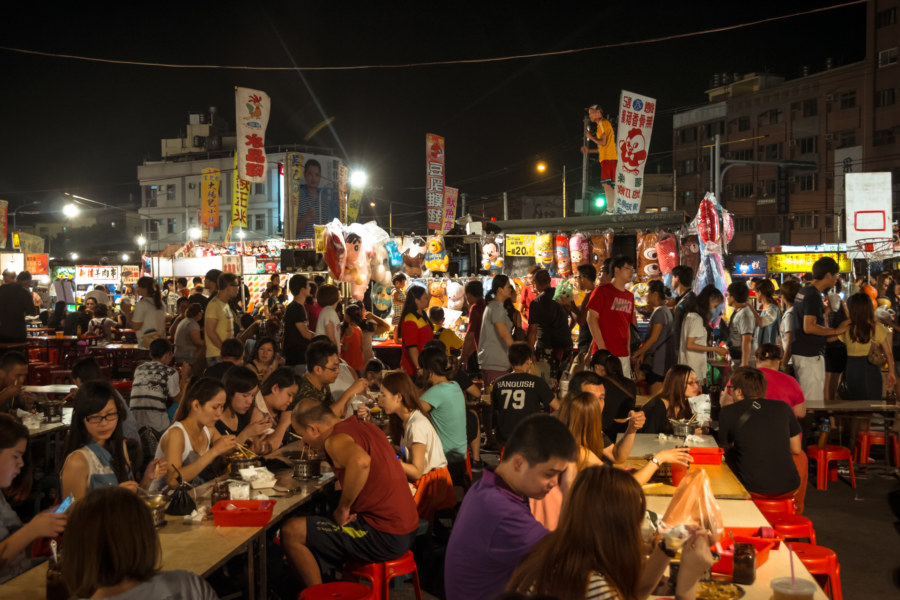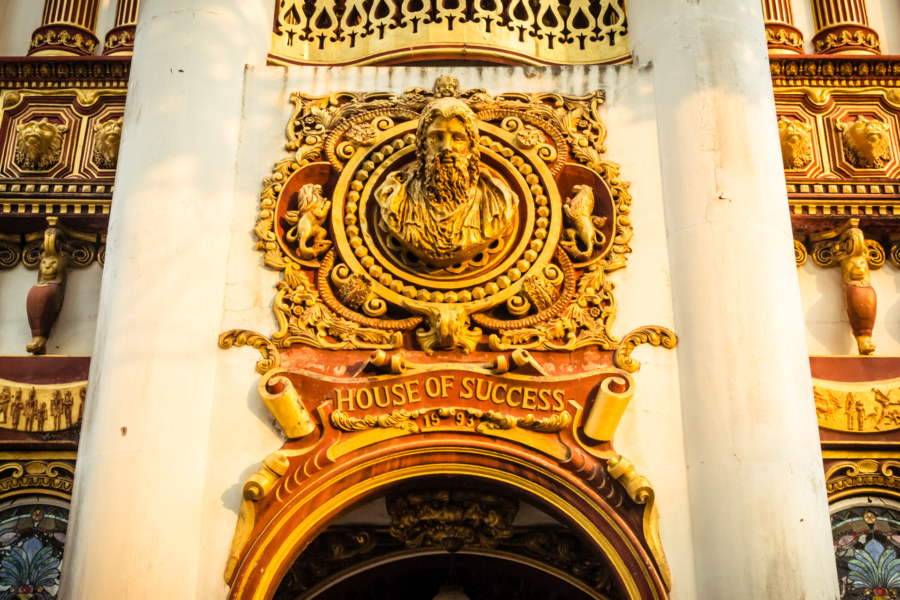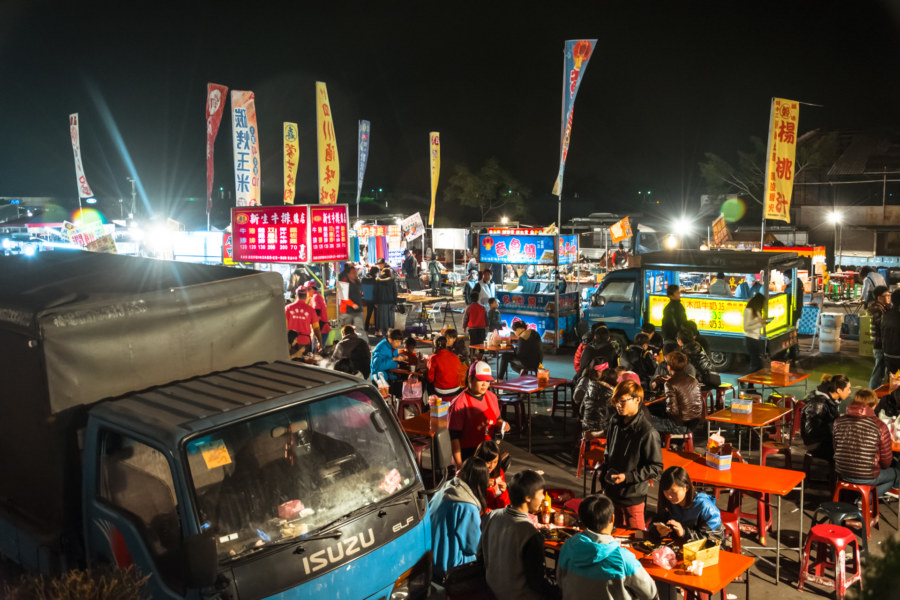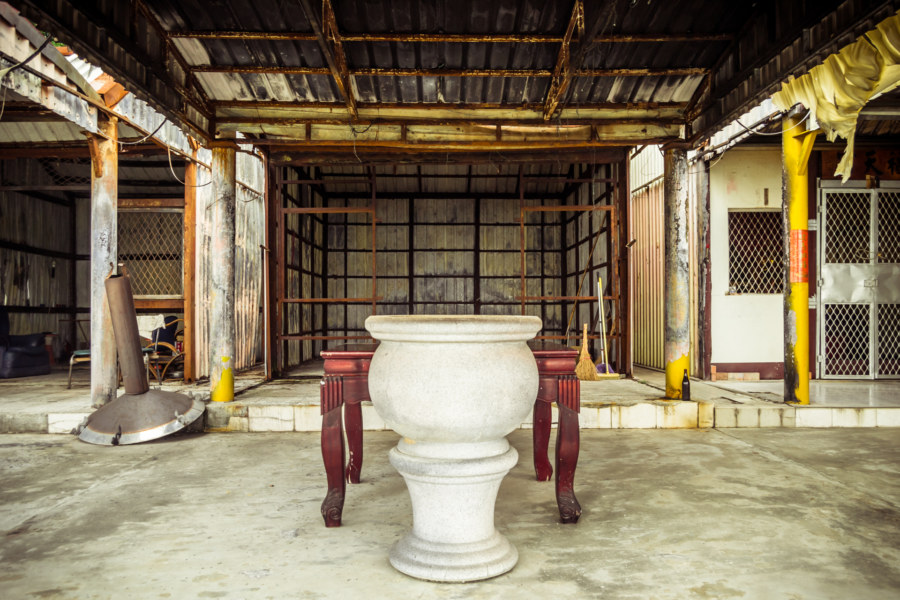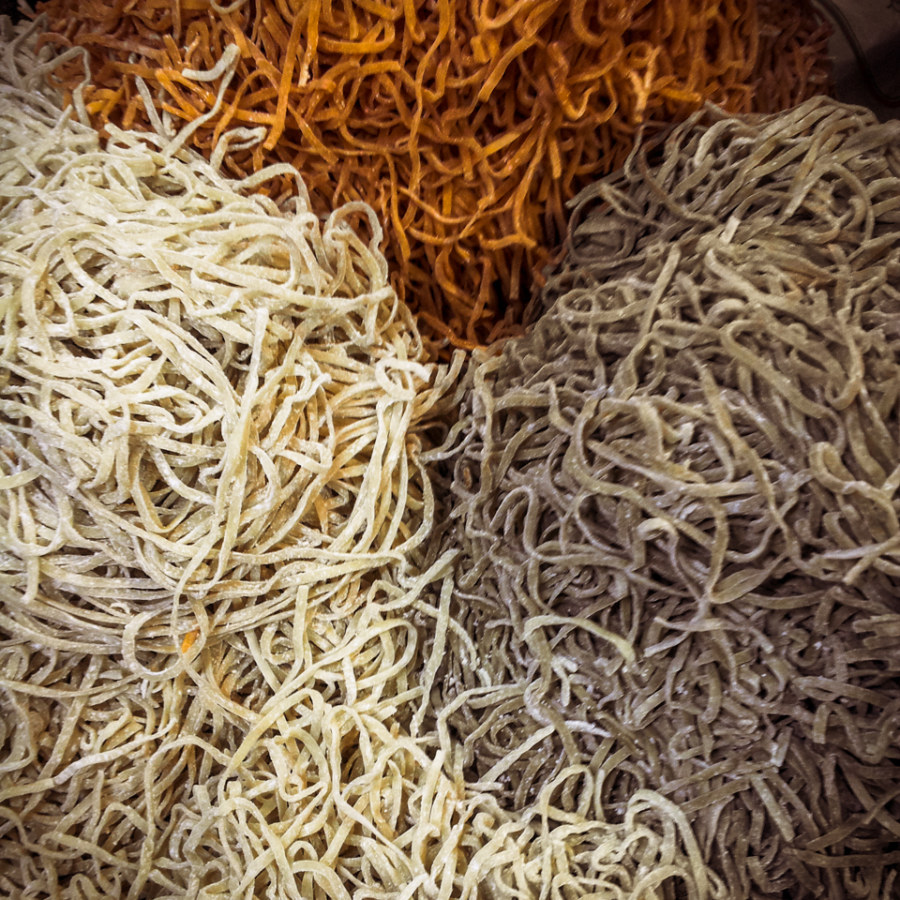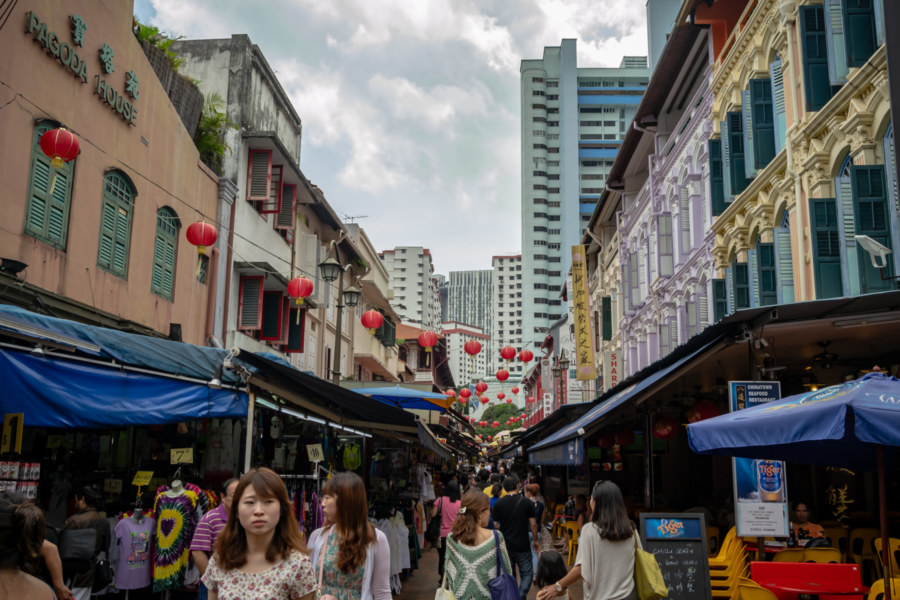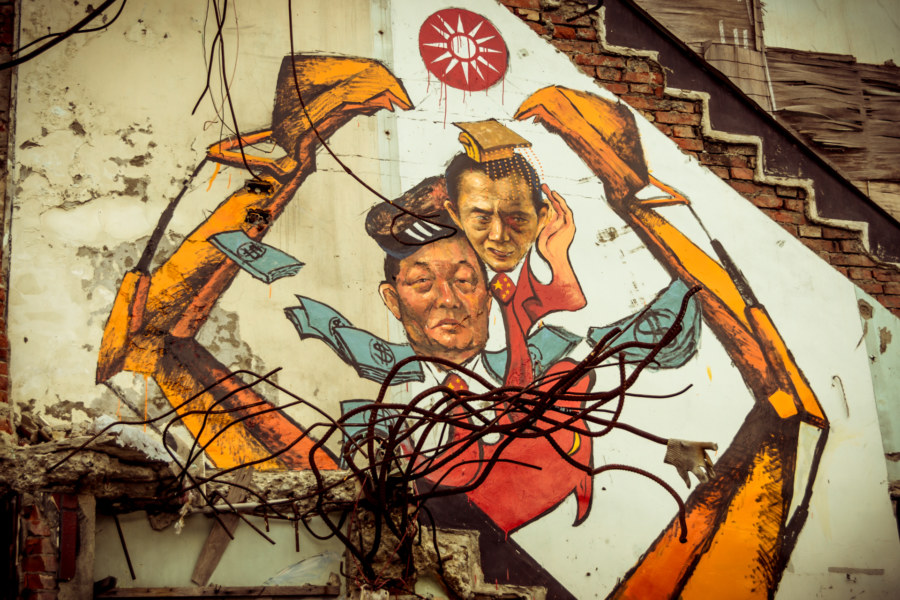Pǔtuóshān White Temple (普陀山白衣道場) is one of the more unusual temples I have visited in Taiwan. Named after Putuoshan, one of the holy mountains of Chinese Buddhism, and dedicated to the worship of Guanyin (觀音), goddess of mercy, it appears to have been built in 2004. Apart from these basic details it seems like very little is known about this mysterious temple.
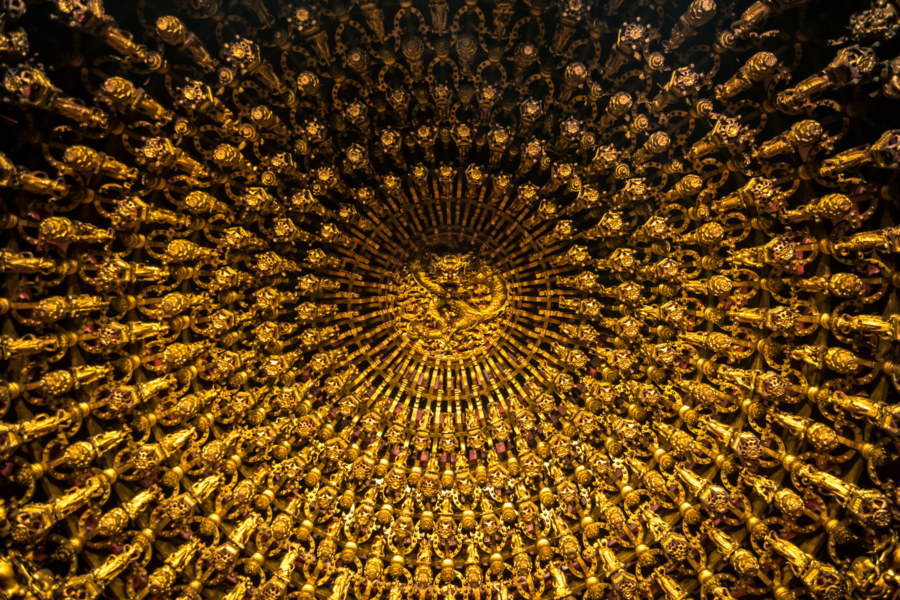
Cultural observations, insight, and confusion.
Nishinari and The Way Things Ought To Be
Nishinari is widely reputed to be the most run-down, crime-ridden, and dangerous part of Osaka—and about as close to a slum as you are likely to find anywhere in Japan. This may explain the preponderance of cheap backpacker accommodation in Shinimamiya, the area just south of Shinsekai 新世界 (literally “New World”), where I stayed for a single night last May before returning to Taiwan. Although I only had a few hours to work with I couldn’t resist wandering around Nishinari to see just how bad it was. I figured it couldn’t be any worse than the Downtown Eastside, the festering carbuncle of Vancouver, which I had wandered through on many occasions.
Scenes From Everyday Life in Wenshan District
I lived in Wenshan, Taipei, from October 2013 until April 2014 when I moved south to Tainan. In those six months I captured a great many photographs from in around the area, the finest of which were previously shared on this blog in a post about the urban landscape of Wenshan. It was my intention with that post to portray southern Taipei from the vantage point of mountaintops, hillsides, river banks, and pedestrian overpasses, with only a couple of shots from street level. This time around I would like to zoom in and share scenes from everyday life in Wenshan.
Jingcheng Night Market 精誠夜市
Jīngchéng Night Market 精誠夜市 is perhaps the largest open air night market in Changhua, Taiwan. Unlike some of the other big night markets in the area Jingcheng hasn’t been developed for tourism in the slightest. I doubt you’ll find it in any guidebook and there isn’t anything written about it in English that I have been able to find online. And, to be fair, there isn’t anything special about Jingcheng, particularly not if you’ve been to the fantastic open air night markets of Tainan. Still, if you’re a night market connoisseur like me—or merely interested in trying something different—it might be worthwhile to check out, or you can live vicariously through my photos.
House of Success, Chiang Mai
Mere minutes after setting out from my hotel to explore Chiang Mai I stumbled upon a bizarre building in a mostly empty lot just inside the old city walls. I swear I don’t always go looking for abandoned places—sometimes they find me instead. And in this case I couldn’t very well say no, now could I? I walked up the stairs to take a closer look at this ostentatious ruin, the House of Success.
Caotun Night Market 草屯夜市
Tonight I visited one of the biggest night markets in Nantou, the Cǎoxiédūn Tourist Night Market 草鞋墩人文觀光夜市 in Caotun. Located at the north end of town, the sprawling open air Caotun Night Market offers a somewhat unusual twist on the Taiwanese night market formula of meals, snacks, drinks, cheap goods, clothing and accessories, and fairground games. I have now visited more than a dozen night markets in this area of Taiwan and this one definitely stands out.
Dayeh Futian Temple 大葉福天宮
High on the upper slopes of the modest Bagua Mountain Range 八卦山脈 (pinyin: Bāguàshānmài) overlooking Dayeh University (pinyin: Dàyè), on the border between Changhua and Nantou in Taiwan, stands a strange half-abandoned temple. It is peculiar in that temples are almost never left to the elements the way this one has been. Abandoned buildings are commonplace in this land of abundant ruins—but even the most obscure temples receive regular maintenance in the form of incense and offerings, among other things. To neglect the gods and spirits is to curse a place with tremendously bad luck and misfortune. Temples may be formally decommissioned, dismantled, and destroyed—but they are almost never simply abandoned or left to decay like this. What’s going on here?
How to Eat Like a Local in Tainan
Tainan is known throughout Taiwan for its food—but deciding where to eat can be somewhat daunting, especially for anyone who doesn’t very much Chinese. There are literally thousands of restaurants to choose from—in addition to the many night markets scattered around the city. Taiwan, like any highly digital and developed nation, has a vast number of restaurant reviews online, but it isn’t practical to sift through all those reviews without some degree of fluency (or a lot of patience with the shoddy state of machine translation). And, to be honest, I would much rather know how to find good food than read specific restaurant reviews. I didn’t know much about Tainan’s cuisine when I moved there for three months last spring—so with this post I mean to give you the benefit of my experience as a mostly illiterate foreigner attempting to hack the system and eat well in Taiwan’s historic old capital.
Postcards From Singapore
These photographs were captured on a short two day, three night visit to Singapore in February 2013. I was unable to do more than scratch the surface of this intriguing island city-state on such a brief trip, but I did manage to take a few interesting shots while I was there. Most of my time was spent in Singapore’s historic Chinatown, known in Chinese as Niúchēshuǐ 牛車水 (literally “ox-cart water”), but I also ventured into Little India and the Downtown Core.
The Seeds of Unrest
Part of a mural by Taiwanese artist Liu Tsungjung 劉宗榮 in Dapu village.
Last night I went to Dapu Village in Zhunan, the northernmost township in Miaoli, for a concert and movie screening commemorating the treacherous demolition of four homes last year. The event took place on the former site of Chang Pharmacy, whose owner, Chang Sen-wen (張森文), was later found dead in a drainage ditch in an apparent suicide. This occurred not long after the government razed his home and business to the ground with all his possessions still inside. In a cruel twist of fate the Chang family was served a bill for demolition equalling the financial compensation offered by the government—leaving them with absolutely nothing. Eminent domain may serve the public interest in special circumstances—but this was outright robbery by the state.
The Dapu incident1, in brief: Miaoli magistrate Liú Zhènghóng (劉政鴻, pictured above, at left) ordered the expropriation of 156 hectares of land in Dapu Village in 2009, ostensibly to build a new…
